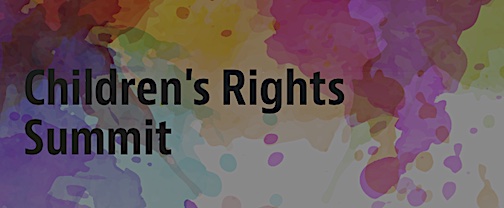Pope Francis’ speech to the 2025 Children’s Rights Summit entitled “Love them and Protect them”.
Clementine Hall – Monday, 3 February 2025
“S culture of efficiency regards childhood itself, like old age, as a “periphery” of existence”
Your Majesty,
Dear brothers and sisters,
I greet the Secretary of State, the Cardinals and the distinguished participants in this World Leaders Summit on the Rights of the Child, entitled “Love them and Protect them”. I thank you for accepting this invitation and I am confident that, by pooling your experience and expertise, you will find new ways to help and protect the children whose rights are daily trampled upon and ignored.
Even today, the lives of millions of children are too often marked by poverty, war, lack of education, injustice and exploitation.
Children and adolescents in poorer countries, or those torn apart by tragic conflicts, are forced to endure terrible ordeals. Even the more resource-rich world is not immune to injustice.
Where thank God, people do not suffer from war or hunger, there are problematic peripheries, where the little ones are often vulnerable and suffer from problems that we cannot underestimate.
In fact, to a much greater extent than in the past, schools and health services have to deal with children who are already tested by many difficulties, with anxious or depressed youngsters, and with adolescents drawn to forms of aggression or self-harm.
Moreover, a culture of efficiency regards childhood itself, like old age, as a “periphery” of existence.
Those who have their whole lives ahead of them are increasingly unable to face them with optimism and confidence.
Young people, who are the beacon of hope in any society, are struggling to find hope in themselves.
This is sad and disturbing.
Indeed, it is sad to see young people without hope, facing an uncertain and unpromising future, without employment or job security, without realistic prospects after school.
Without hope that their dreams can come true, they will inevitably become discouraged and listless..
We have tragically seen, almost every day in recent times, children dying under bombs, sacrificed to the idols of power, ideology, and nationalistic interests. This is unacceptable.
In truth, nothing is worth a child’s life!
To kill children is to deny the future.
In some cases, minors themselves are forced to fight under the effect of drugs.
Even in countries without war, violence between criminal gangs becomes just as deadly for children and often leaves them orphaned and marginalized.
The pathological individualism of developed countries also harms children.
Sometimes they are abused or even killed by the very people who should be protecting and nurturing them. They are victims of quarrels, social or psychological distress, and parental addiction.
Many children die as migrants at sea, in the desert or along the many routes of journeys undertaken out of desperate hope.
Countless others succumb to a lack of medical care or various forms of exploitation. All these situations are different, but they raise the same question: How is it possible that a child’s life should end like this?
This is certainly unacceptable, and we must guard against becoming accustomed to this reality.
A denied childhood is a silent cry condemning the injustice of the economic system, the criminal nature of wars, the lack of adequate health care and education.
The burden of these injustices falls most heavily on the weakest and most defenseless of our brothers and sisters. At the level of international organizations, this is called a “global moral crisis”
We are here today to say that we do not want this to become the new normal. We refuse to get used to it. Certain practices in the media tend to make us insensitive, leading to a general hardening of the heart. In fact, we risk losing what is most noble in the heart: mercy and compassion.
More than once, I have shared this concern with some of you who represent different religious communities.
Today, more than forty million children have been displaced by conflict and about one hundred million are homeless. There is also the tragedy of child slavery: some one hundred and sixty million children are victims of forced labor, trafficking, abuse and exploitation of all kinds, including forced marriages.
There are millions of migrant children, sometimes with families but often alone.
The phenomenon of unaccompanied minors is becoming more frequent and serious.
Many other minors live in “limbo” because they were not registered at birth.
An estimated one hundred and fifty million “invisible” children have no legal existence.
This hinders their access to education or health care, but worse still, because they have no legal protection, they can easily be abused or sold into slavery. This does happen!
We can think of the young Rohingya children, who struggling to get registered,
or the “undocumented” children at the border of the United States, the first victims of that exodus of despair and hope of thousands of people coming from the South towards the United States of America, and many others.
Sadly, this history of the oppression of children continues to be repeated.
When we ask the elderly, our grandparents, about the war they experienced when they were young, the tragedy emerges from their memories: the darkness – everything is dark during war, the colors practically disappear – and the stench, the cold, the hunger, the dirt, the fear, the looting, the loss of parents and homes, the abandonment and all kinds of violence.
I grew up listening to my grandfather’s stories of World War I, and it opened my eyes and heart to the horror of war.
Seeing things through the eyes of those who have experienced war is the best way to understand the inestimable value of life.
But also listening to those children who today live in violence, exploitation or injustice serves to strengthen our “no” to war, to the throwaway culture of waste and profit, in which everything is bought and sold without respect or care for life, especially when that life is small and defenseless.
In the name of this throwaway mentality, in which human beings become all-powerful, unborn life is sacrificed through the murderous practice of abortion.
Abortion suppresses the life of children and cuts off the source of hope for the whole of society.
Sisters and brothers, how important it is to listen, because we must realize that little children understand, remember and speak to us. They also speak to us with their looks and their silence.
So let us listen to them!
Dear friends, I thank you and encourage you, with God’s grace, to make the most of the opportunities this meeting offers. I pray that your contributions will help to build a better world for children, and consequently for all of us!
It is a source of hope for me that we are all here together, to put children, their rights, their dreams, and their aspirations for the future at the center of our concern.
Thanks to all of you, and God bless you!


